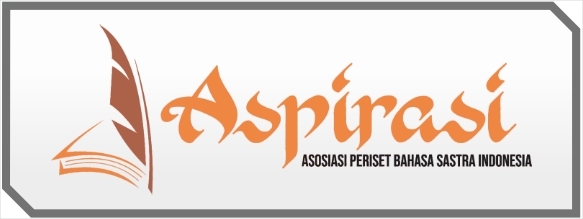Kapitalisme Pendidikan di Sekolah Satuan Pendidikan Kerjasama (SPK) dalam Perspektif Teori Keadilan
DOI:
https://doi.org/10.59581/jmpb-widyakarya.v2i4.4323Keywords:
educational capitalism, cooperative education unit schools, SPK, theory of justice, constitutional rightsAbstract
In practice, the Cooperative Education Unit (SPK) does not provide the same space for every Indonesian citizen to get a quality education. SPK has becomea practice of educational capitalism that further widens the gap between one person and another and eliminates the principle of justice where everyone has the right to equal opportunities for education. The method used in this study is normative legal research that uses three approaches, namely the legislative approach, the case approach, andthe conceptual approach. With the analysis using the perspective of critical law and the theory of Justice John Rawls. The result of this study is a policy recommendation so that the Cooperative Education Unit (SPK) school policy as a product of government policy in the education area contained in Permendikbud No. 31 of 2024 should be reviewed, corrected and returned to be a policy in accordance with national education goals. In order to be in line with the constitutional mandate to educate the life of the nation and to provide space or access to every citizen to get his or her constitutional right to education.
References
Afandi, M Riyan, D. (2023). “Tantangan dan Strategi dalam Menggunakan Assesssment Untuk Meningkatkan Pembelajaran di Era Digital.”Prosiding Santika 3: Seminar Nasional Tadris Matematika Uin K.H. Abdurrahman Wahid Pekalongan.
Agustiningsih, N. (2023). Strategi Pembelajaran Inovatif. In Inovasi Pendidikan Dan Pembelajaran.
Connaway, L. S., & Radford, M. L. (2021). Research methods in library and information science. Bloomsbury Publishing USA.
Dalyono, B. (2016). Strategi Pembelajaran Inovatif Untuk Mencapai Kompetensi Pembelajaran. Prosiding Temu Ilmiah Nasional Guru (Ting) Viii Strategi. Upbjj-Ut Semarang, November, 29–41.
Evi Febrianti, Makki, Rosmiati Ramli, Andi Fitriani Djollong, & Muhammad Nur Maallah. (2023). Implementation of Islamic Religious Education Learning Evaluation Through Daily Tests on Students’ Learning Motivation UPTD SMP Negeri 4 Parepare. Indonesian Journal of Interdisciplinary Research in Science and Technology, 1(9), 823–838. https://doi.org/10.55927/marcopolo.v1i9.6588
Hidayat, T., & Asyafah, A. (2019). Konsep dasar evaluasi dan implikasinya dalam evaluasi pembelajaran pendidikan agama Islam di sekolah. Al-Tadzkiyyah: Jurnal Pendidikan Islam, 10(1), 159–181.
Hosaini, H., Qomar, M., Fitri, A. Z., Akhyak, A., & Kojin, K. (2024). Innovative Learning Strategies for Islamic Religious Education Based on Merdeka Belajar Curriculum in Vocational High Schools. Al-Hayat: Journal of Islamic Education, 8(3), 966–981.
Magdalena, I., Istiqomah, & Yunita, R. (2023). Implementasi, Evaluasi, Sumatif Dan Difusi Inovasi. Jurnal Sindoro Cendekia Pendidikan, 2(10), 10–20. https://doi.org/10.9644/scp.v1i1.332
Nainggolan, J. (2021). Evaluasi Pembelajaran Siswa Dan Tantangan Solusi Selama Pandemi Covid-19. Jurnal Pendidikan Indonesia : Teori, Penelitian, Dan Inovasi, 1(3). https://doi.org/10.59818/jpi.v1i3.500
Nurdin, N., & Anhusadar, L. (2020). Efektivitas Pembelajaran Online Pendidik PAUD di Tengah Pandemi Covid 19. Jurnal Obsesi : Jurnal Pendidikan Anak Usia Dini, 5(1), 686. https://doi.org/10.31004/obsesi.v5i1.699
Persico, D., Manca, S., & Pozzi, F. (2014). Adapting the technology acceptance model to evaluate the innovative potential of e-learning systems. Computers in Human Behavior, 30, 614–622.
Rahmawati, F. (2018). Kecenderungan Pergeseran Pendidikan Agama Islam di Indonesia Pada Era Disrupsi. Tadris: Jurnal Pendidikan Islam, 13(2), 244–257.
Segundo-Marcos, R., Carrillo, A. M., Fernández, V. L., & González, M. T. D. (2023). Age-related changes in creative thinking during late childhood: The contribution of cooperative learning. Thinking Skills and Creativity, 49, 101331.
Sultani, D. I., Putri Silalahi, C. A., & Ali, R. (2021). The Learning Strategy Of Islamic Education At Primary School In Implantation Of Islamic Thought Values. Jurnal Ilmiah Sekolah Dasar, 5(1), 1. https://doi.org/10.23887/jisd.v5i1.28582
Wena, M. (2020). Strategi Pembelajaran Inovatif Kontemporer. Suatu Tinjauan Konseptual Operasional, April, 262.
Downloads
Published
How to Cite
Issue
Section
License
Copyright (c) 2024 Jurnal Motivasi Pendidikan dan Bahasa

This work is licensed under a Creative Commons Attribution-ShareAlike 4.0 International License.














